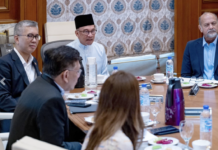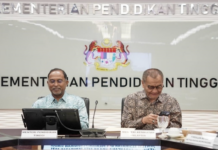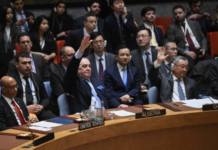TEMERLOH, March 11 — The pressing needs of Internet connectivity nationwide due to the COVID-19 pandemic, was a major challenge to Communications and Multimedia Minister, Datuk Saifuddin Abdullah.
Saifuddin who headed the Ministry of Communications and Multimedia (KKMM) for one year, said the number of complaints on delay to access or low signal rose during the implementation of the first Movement Control Order (MCO) on March 18 2020 which saw people being confined at home.
“Internet access traffic provided by telecommunications companies is according to three components which are location of residence, business premises or workplace and the routes connecting the two earlier locations.
“During MCO, internet access in housing areas was congested and slow as internet usage was very high due to working, learning and business from home.
“This new issue was a challenge to the ministry as no one expected we would be facing COVID-19. All parties including telecommunications companies had to work hard to improve the situation,” he told reporters after attending the Malaysia Prihatin programme at Temerloh Community College here yesterday.
Also present were National Film Development Corporation Malaysia (FINAS) chairman, Zakaria Abdul Hamid, Pahang Malaysian Communications and Multimedia Commission (MCMC) director Zahari Ismail and State Information Department director, Mohd Salmun Mustafa.
Commenting further, he said the implementation of the National Digital Network (Jendela) was among the wise moves coming out of the pandemic and Jendela was created with the objective to improve the level of digital connectivity and the quality of communication services throughout the country.
Through past experience, Saifuddin said only a highway created under a special government entity to implement Jendela would allow the cost borne by consumers to be lower as it involved non-telecommunications company investment.
“On the aspect of the digital economy, we have also improved e-Commerce programmes such as Local e-Commerce Service (PeDAS), eRezeki programme and Global Online Workforce to benefit 422,273 people with focus on obtaining digital investment from abroad this year,” he said.
Saifuddin said for the creative industry, the initiative under Malaysia Creative Industries Stimulus Package (PRISMA) with an allocation of RM89.2 million will benefit more than 9,000 industry practitioners and create more than 40,000 new job opportunities.
Saifuddin who hoped to see the country’s creative industry received international recognition, also said efforts towards this direction would commence more seriously and systemically this year including having collaborations with countries such as Australia and South Korea.
“Alhamdulillah, the issue of additional manpower for Radio Televisyen Malaysia (RTM) which has long depended on the old piecemeal solution since the 1980s, has been successfully been settled with 397 of them in the process of being appointed on Contract of Service basis.
“This allows them to have a fixed salary compared to before, being paid by the day or hour, and have a salary slip that can help facilitate their needs such as getting a loan,” he said.



















